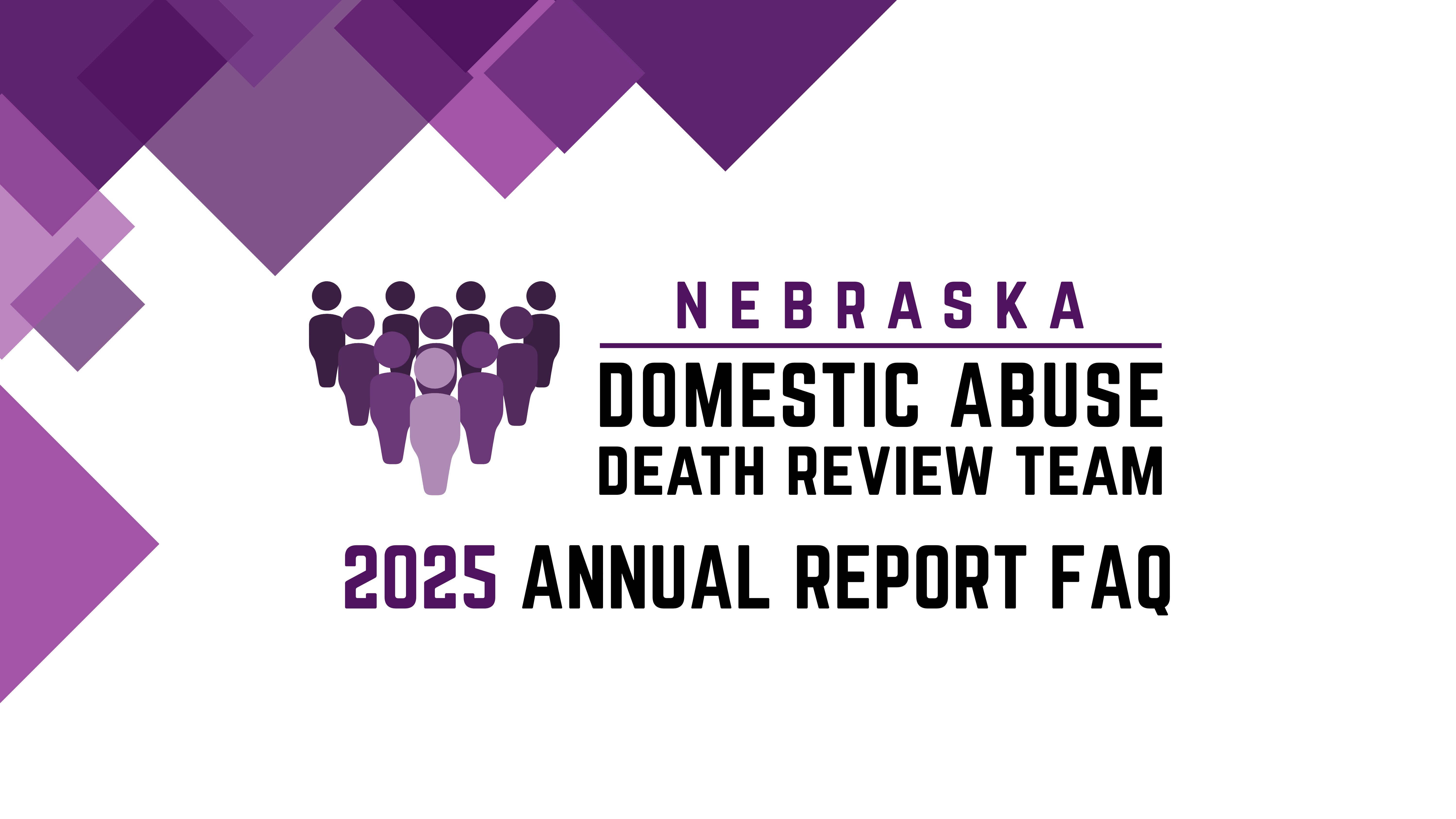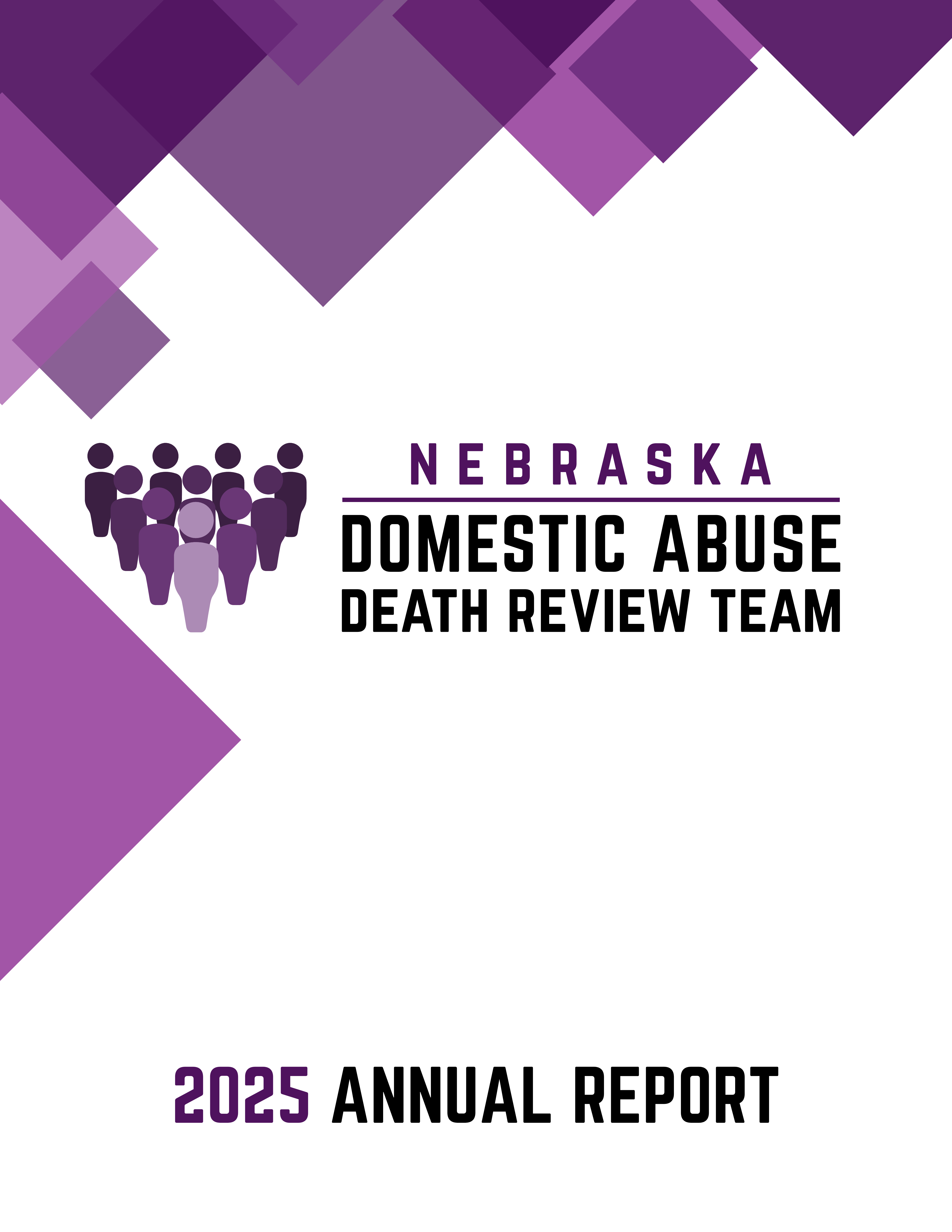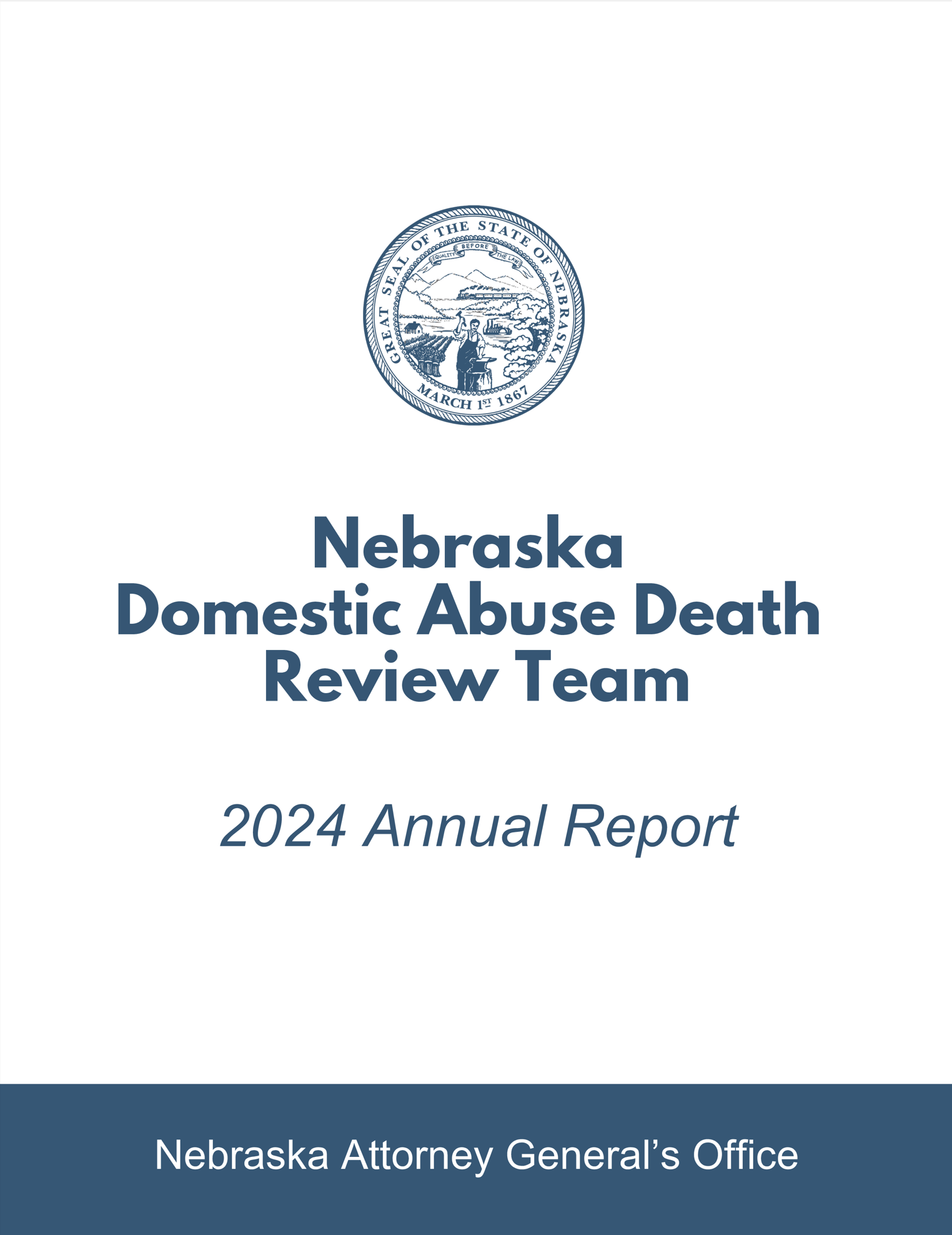
About the Domestic Abuse Death Review Team:
The Nebraska Domestic Abuse Death Review Team (DADRT) was established on July 21, 2022. The DADRT collaborates and conducts a multidisciplinary analysis of the victims’ experiences, perpetrator behaviors, and general circumstances surrounding domestic abuse deaths. Through the review process, the Team identifies contributing factors related to the decedents, perpetrators, and systems responsible for supporting, assisting, and protecting victims from domestic abuse.
The collaborative efforts of the review process provide an opportunity to improve the State’s response to address the needs of domestic violence victims. Domestic abuse cases are reviewed only after the criminal case has been finalized or a perpetrator’s death occurs. Only deaths that occurred on or after July 21, 2022 may be reviewed by the DADRT.
Comprised of a diverse group of professionals and survivors, we examine all domestic abuse deaths statewide. By examining the causes and contributing factors to these deaths, we will provide recommendations for public, private, community and system improvements to enhance victim safety and prevent future domestic abuse fatalities.
We envision safe communities where public and private agencies, institutions, and systems work collaboratively to support survivors and ultimately end domestic abuse fatalities.
- Reviews are conducted with respect, integrity, sensitivity, and compassion
- We value survivor-led leadership
- We refrain from making accusations of blame or fault-finding
- We focus our work to honor the victim, families and communities impacted by domestic violence
Annual Report
Resources:
Are You or Someone You Know in Danger?
If you or someone you know is experiencing domestic violence, help is available—you're not alone. Some situations carry a higher risk of serious harm or homicide. These lethality factors may include:
-
Recent or attempted strangulation
-
Escalating threats or use of weapons
-
Stalking or obsessive jealousy
-
Controlling behavior and isolation
-
Recent separation or attempts to leave the relationship
-
Prior threats to kill the victim, children, or self
-
History of forced sex or extreme violence
Recognizing these signs can save lives. If any of these warning signs are present, it’s critical to seek help immediately. Contact a local shelter, advocate, or emergency services.
-
National Domestic Violence Hotline: 1-800-799-SAFE (7233)
-
Love is Respect: Text 1-866-331-9474
-
Rape, Abuse, and Incest National Network (RAINN): 1-800-656-HOPE (4673)
-
National Teen Dating Abuse Helpline: 1-866-331-9474
-
Nebraska Child Abuse Reporting: 1-800-652-1999
-
Nebraska Coalition to End Sexual and Domestic Violence: www.nebraskacoalition.org
Amy Cirian, LIMHP



